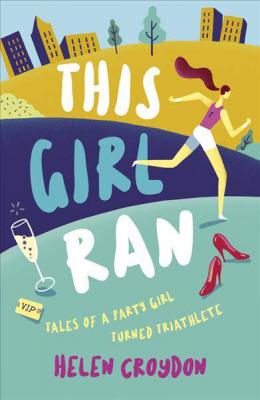
1. Find your story
There’s a key difference between memoir and autobiography: Memoirs tell the story of a certain period of life – not one’s full life story. What that means is, in memoir the interesting thing is the subject matter, not the person. One’s life story is only remotely interesting if you’re a celebrity. For us mere mortals, we have to ask, what story do I have that is interesting to others? Have you had an interesting occupation that people are curious about? Do you have a tale of survival?
2. Weave in hot topics
Anecdotal tales aren't enough. You need to make your story relevant to wider cultural debates. A good memoir will have insights and observations and express the views and dilemmas of readers going through similar experiences. For example my latest book, This Girl Ran, is a memoir about discovering outdoor sport, toughening up and qualifying to be a GB triathlete. It wasn’t just about me turning up to triathlons and marathons (boring!). I delved into themes such as why so many women are put off sport, how modern convenient life styles has contributed to an obesity crisis and the therapeutic effect of nature.
3. Develop a planning strategy
In my experience of teaching memoir, the number one thing students want to know is how to plan. But there is no easy how-to guide. Books are like giant jigsaws and how you piece it together is unique to how your brain works. For me it was a case of plan a bit, write a bit, plan a bit more, write a bit more. The two processes feed each other. You can’t get to the next phase of planning without writing to see where your ideas go, and vice versa.
4. Be selective with the truth
Memoirists don’t make things up, but they do need to create a story arc as they would for fiction. There is still often a moral lesson for the main character, or mystery or suspense. Let’s face it, real life is boring and full of irrelevant meetings or events that lead to nothing. The skill to writing memoir is selecting the most poignant bits of our life journey, and filtering out the meaningless bits, so they lead to an over-arching conclusion.
5. Be prepared to change characters
If you’re writing about private aspects of people’s lives (family life, romantic life, health conditions, commercial secrets) then you have a legal - or at least ethical - obligation to disguise the identify of those concerned. My first book was a dating memoir. This meant I had to disguise every possible identifiable characteristic, should any of their friends recognise them by their description. Americans became Canadians. Lawyers became bankers. Blondes became brunettes. This can often lead to inconsistencies in the plot. For example, I had to change a Eurostar trip to Paris, to Brussels. Bang went my beautiful description of the Champs-Elysées or my humorous references to rude waiters in cafes. That’s where creative writing skills come in. They key is to create a comparable scene which reflect the essence of the true experience, but set in a different place.
Helen Croydon is an author, journalist and publicity consultant for Right Angles. Her first memoir, Sugar Daddy Diaries became a WHSmith best-seller in 2011. Her latest memoir This Girl Ran is long-listed for the William Hill Sports Book of the year 2018.
Thank you for your useful comments on memoir writing.One question I need clarification on is this: I am writing about a year in my Mum’s life and the same year in her sister’s life.The story comes from their separation at the end of WW2 in Germany and how they travel across their defeated country as refugees in an effort to find one another. Their story is told in diaries,letters, photographs,maps and documents, found after both had died, which I have translated. Am I writing a memoir or a biography?